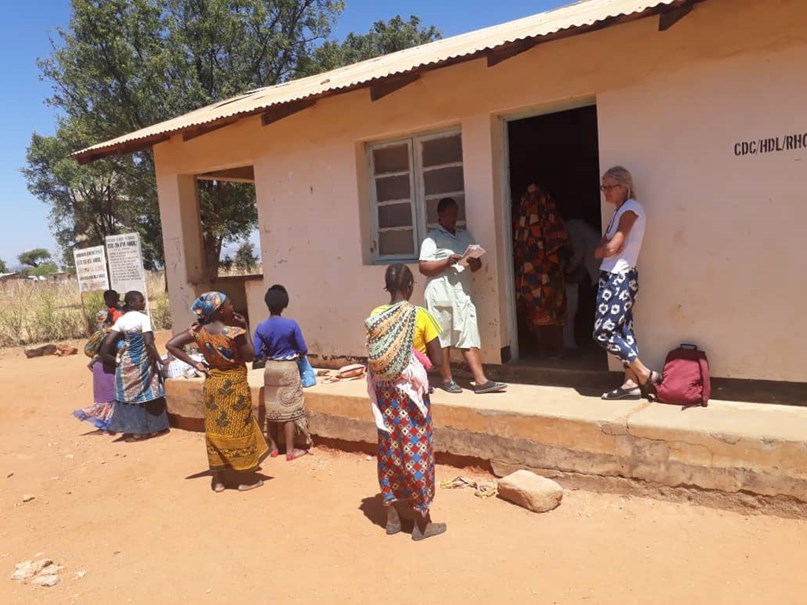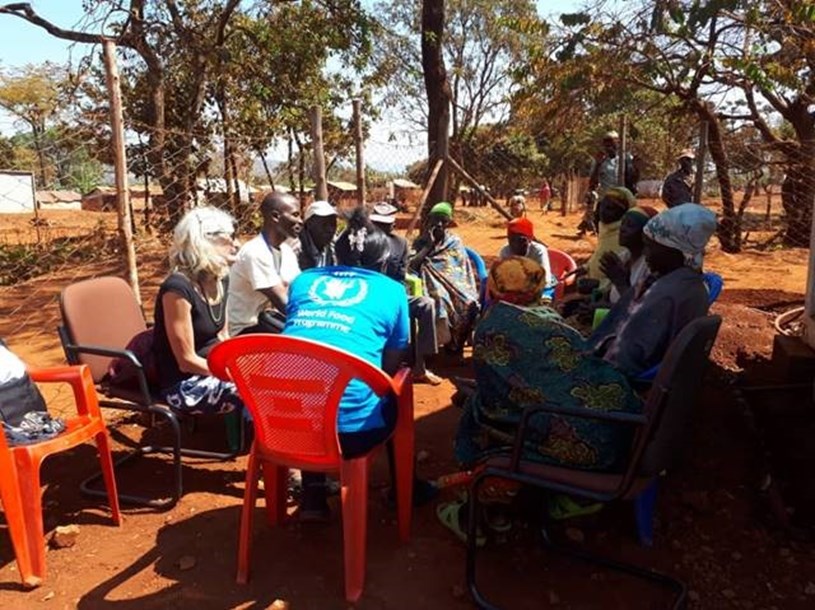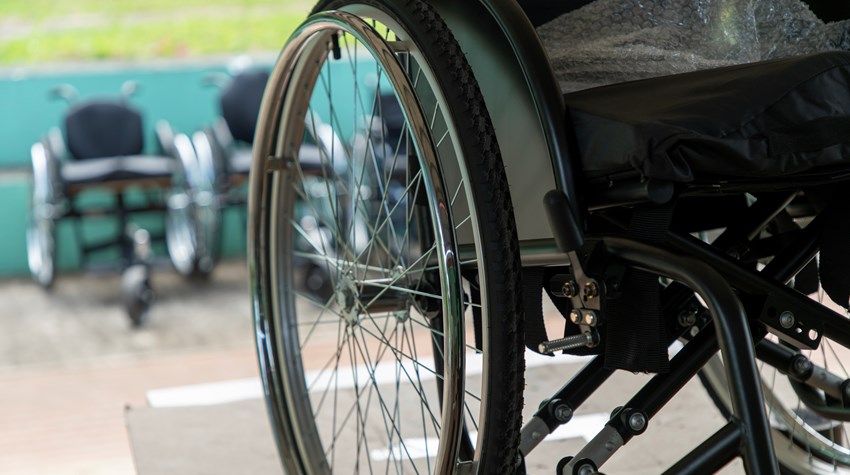In her role as Senior Disability Advisor, Vivienne travelled to WFP country offices located across the globe, including in Turkey, South Sudan, Uganda, Tanzania, Myanmar, Laos, and Jordan where she worked to raise awareness of the importance of inclusion and the rights of people with disabilities.
“My role was to visit country offices and meet with people with disability and older people interested in sharing their experiences of disability inclusion. I worked with them and WFP field workers and partners to identify barriers, and explored ways to enable equal and dignified access to WFP programmes,” said Vivienne.
“This included at WFP food distribution sites and cash based transfer points, in livelihood, vocational, education, and school feeding programmes, in gender and emergency response programmes, and in employment within WFP.”

Vivienne at a food distribution point for pregnant and lactating women in Tanzania. Photo credit: Vivienne Topp, RedR Australia
Vivienne’s country visits involved meeting with people with disability and older people in refugee camps and host communities, and listened to their experiences of barriers faced. Through this, Vivienne found that lack of access to transport and information on their rights and entitlements were the most frequently mentioned, with all responses documented to help ensure better response planning.
“At the end of each mission a feedback report was provided including some case examples of successful inclusion. These will be collated into a final report that will highlight the lessons learned and make recommendations to ensure ongoing inclusive practice,” Vivienne said.

Vivienne supporting a focus group discussion with people with disability and older people in Tanzania. Photo credit: Vivienne Topp, RedR Australia
In addition, Vivienne also assisted the country offices to connect and partner with local Disabled People’s Organisations (DPOs). Facilitating these partnerships will help to ensure country offices are coordinating their activities with the appropriate DPOs, to best ensure disability considerations are mainstreamed into humanitarian response.
“Most field workers were unaware of the existence of these organisations, however they were eager to include people with disability and older people in future planning and service delivery,” said Vivienne. “All Country Offices showed great commitment and enthusiasm to work to develop strong partnerships, as well as exploring ways to look at equal opportunity employment within WFP and other UN organisations.”
Through her role, Vivienne also acted in a mentor capacity for in-country disability focal points, and worked closely alongside gender focal points to maximise programming impact. Vivienne said a role such as hers is crucial to ensure inclusive humanitarian response for groups often overlooked in a crisis.
“People with disability and older people are often not included or considered when communities flee from crisis or conflict,” Vivienne said.
“This disability role is crucial to ensure that all WFP field workers and programmes consider access in the design and development phase of emergency response, rather than to try retrofit solutions at a later time. If access is considered and barriers are addressed, then all people will benefit.”



